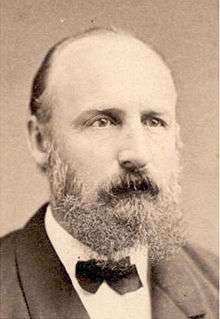Please tell us which country and city you'd like to see the weather in.

Rijeka
Rijeka (Croatian pronunciation: [rijɛ̌ːka]; Italian: Fiume; Hungarian: Fiume; Slovene: Reka, German: Sankt Veit am Flaum, other names) is the principal seaport and the third-largest city in Croatia (after Zagreb and Split). It is located on Kvarner Bay, an inlet of the Adriatic Sea and has a population of 128,624 inhabitants (2011). The metropolitan area, which includes adjacent towns and municipalities, has a population of 245,054 (2011).
Historically, because of its strategic position and its excellent deep-water port, the city was fiercely contested, especially among Italy, Hungary (serving as the Kingdom of Hungary's largest and most important port), and Croatia, changing hands and demographics many times over centuries. According to the 2011 census data, the overwhelming majority of its citizens (82.52%) are presently Croats, along with small numbers of Bosniaks, Italians and Serbs.
Rijeka is the main city of Primorje-Gorski Kotar County. The city's economy largely depends on shipbuilding (shipyards "3. Maj" and "Viktor Lenac Shipyard") and maritime transport. Rijeka hosts the Croatian National Theatre Ivan pl. Zajc, first built in 1765, as well as the University of Rijeka, founded in 1973 but with roots dating back to 1632 School of Theology.
Fiume (disambiguation)
Fiume is the historical name of Rijeka, a city in Croatia.
Fiume may also refer to:

Corpus separatum (Fiume)
The Corpus separatum of Fiume (formally known as City of Fiume and its district (Hungarian: Fiume város és kerülete) was the name of the legal and political status of the city of Fiume (now modern Rijeka), instituted by Empress Maria Theresa in 1776, determining the semi-autonomous status of Fiume within the Habsburg Empire until the fall of the Austro-Hungarian Empire in 1918 – the longest-lasting known case of an actually implemented corpus separatum.
Origins
Maria Theresa of Austria, with her sovereign decision of 2 October 1776, gave up possession of Fiume, which was a hereditary fief of the Habsburgs within the Holy Roman Empire, and gave it to the Kingdom of Hungary, of which she was also Queen, with a view of fostering trade. Since Hungary proper was some 500 km away, the city was annexed to Croatia, whose territory began at the city walls. Croatia, as a kingdom, was united with Hungary and with it formed the “Lands of the Holy Crown of St Stephen”. Two and a half years later, Maria Theresa, as Queen of Hungary, by a royal rescript dated 23 April 1779, annexed the city of Fiume directly to Hungary as a corpus separatum (that is, not as a part of Croatia, which was in a personal union with Hungary). Since Fiume had to serve a similar function for Hungary as Trieste did for the Habsburg lands, the Hungarian estates (and probably the Queen) wanted to grant the City a similar degree of institutional autonomy to that already enjoyed by Trieste.
Bol
Bol or BOL may refer to:
Places
People
- Manute Bol (1962–2010), Sudanese-born basketball player and activist
Ships
Other

Henry Nicholas Bolander
Henry Nicholas Bolander (February 22, 1831 – August 28, 1897) was a German-American botanist and educator.
Bolander was born in Schlüchtern, Germany and emigrated to the United States in 1846. He joined his uncle in Columbus, Ohio and enrolled in the Columbus Lutheran Seminary. He graduated from the seminary and was ordained a minister but never served in a religious office. Instead, he began his career teaching at the local German-American schools in 1851. In 1857 he married Anna Marie Jenner, a widow who had three children from her previous marriage; together, they eventually added five more children to their family.
At the same time, Bolander became acquainted with a neighbor, Leo Lesquereux, a well-known botanist who had emigrated from Switzerland in 1847. Lesquereux inspired Bolander to develop a keen interest in botany. Bolander began to travel widely in Ohio and neighboring states to study the flora and collect specimens. In 1857 he teamed with John H. Klippart, the Ohio Secretary of Agriculture, to create a catalog of the plants of Ohio. However, in 1860 failing health caused Bolander to return to Germany and the catalog was never published.

Bol (soundtrack)
Bol is the soundtrack album of the 2011 Urdu-language Pakistani film Bol by Shoaib Mansoor. Prior to the movie's release, Atif Aslam (who plays one of the main roles in the film) in an interview stated, "I have done two songs for the soundtrack. It's been a great experience working with Shoaib Mansoor, he is an amazing person and very dedicated. My role isn't controversial and we discussed it beforehand. It’s a film that is being made for a good cause".
Overview and reception
All songs are mixed and mastered by Kashif Ejaz. The singers include Atif Aslam, Sajjad Ali, Hadiqa Kiyani, Ahmed Jahanzeb, Shabnam Majeed, Sahir Ali Bugga, Bina Jawad,Ali Javed. The soundtrack was successful and generally received positive reviews from critics. However, one critical review published in The Express Tribune called the movie's soundtrack "A surprising disappointment" and saying that "The film’s music sounds unoriginal and boring. In fact, people unfamiliar with Sajjad Ali and Ahmed Jehanzaib, might confuse it for Bollywood music."
Radio Stations - Rijeka
SEARCH FOR RADIOS
Podcasts:

